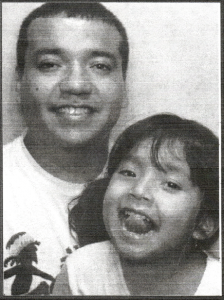As time passed, and I learned more about life in the United States, I began to realize that things were not easy. I experienced many daily obstacles from language barriers to legal documentation. However, one of the hardest things that I dealt with was seeing how people of your same culture and language gave you the cold shoulder. This led me to feel uneasy at my new home, especially after learning that the United States had peaked in deportations that same year. I remember growing conscious of the various types of discrimination that manifested itself in more ways than one. Through this realization I recognized the difficulty of everyone’s inner battle with the person that wanted to do something better for their family but also grew discouraged due to the discrimination and fear of the situation they were experiencing. None of this was easy.

One of the easiest and most promoted options was to learn to become a shadow. The goal was to become an invisible person who hides from the police and tries his or her hardest to fit into the majority of the society. If you can learn to assimilate into white American society, your life has the potential of becoming so much easier. If you can assimilate [white] Americans learn not to pay much attention to you – you become “good” in their eyes. Of course, this is something you do not sit down and plan. It becomes natural after the hardships you face. Think of it as being a battle that you are completely unprepared for. After the first, second, third encounter, you build your tactics and defenses. Naturally, you create your defenses even when you are at a loss. In turn, when you are in a society that constantly beats you down, you learn to create your own defenses. Once you learn how to battle, you learn how to survive in that society. If you are lucky, you learn how to subtly adapt; that way, you battle less often.

As time passed, we began to have more opportunities. We were able to eat a little better, we were able to perhaps buy a t-shirt we liked, we were able to purchase our fist television, we had more benefits. We learned to value what we had because we knew we would not be able to have these same possessions had we stayed in Mexico. Of course, life was not easy and we faced many obstacles, but we did feel we lived better here in the United States.
Soon enough, we had to make a decision – we would either give up the small progression we had made in this country and return to our homeland empty handed or we would stay and continue making a better life for ourselves, even if it meant we had to deal with the sacrifices and consequences of leaving our homeland and family behind. The decision was not easy. Within our first year in the United States, we were still on the same page. We did not want to go back, we felt that we would benefit from staying a while longer. However, we did feel stuck. We did not foresee better opportunities due to our legal status. Things got harder as time passed. By our third year, my partner had to look for a job because I could not pay all of the bills by myself. It was a difficult decision that involved a lot of pain, heartache, and determination. In the end, we decided to stay and try to make a better life for our daughter. We knew she would grow up with our language and our culture. We kept working and hoped for the best.